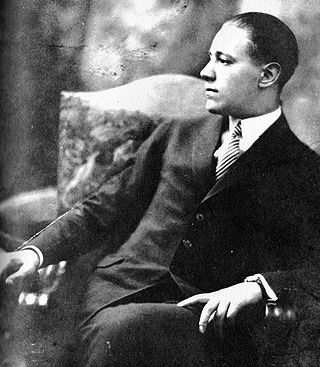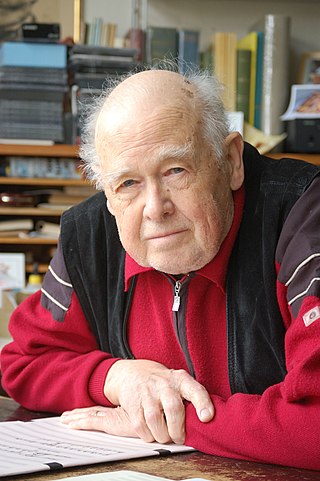
Edmund Josef von Horváth was an Austro-Hungarian playwright and novelist who wrote in German, and went by the name of nom de guerreÖdön von Horváth. He was one of the most critically admired writers of his generation prior to his untimely death. He enjoyed a series of successes on the stage with socially poignant and romantic plays, including Revolte auf Côte 3018 (1927), Sladek (1929), Italienische Nacht (1930), Hin und Her (1934) and Der Jüngste Tag (1937). His novels include Der ewige Spießer (1930), Ein Kind Unserer Zeit (1938) and Jugend ohne Gott (1938).

Evelyn Shulman Lear was an American operatic soprano. Between 1959 and 1992, she appeared in more than forty operatic roles, appeared with every major opera company in the United States and won a Grammy Award in 1966. She was well known for her musical versatility, having sung all three main female roles in Der Rosenkavalier. Lear was also known for her work on 20th century pieces by Robert Ward, Alban Berg, Marvin David Levy, Rudolf Kelterborn and Giselher Klebe. She was married to the American bass-baritone Thomas Stewart until his death in 2006.
Zürich Opera is a Swiss opera company based in Zürich. The company gives performances in the Zürich Opera House.

Giselher Wolfgang Klebe was a German composer, and an academic teacher. He composed more than 140 works, among them 14 operas, all based on literary works, eight symphonies, 15 solo concerts, chamber music, piano works, and sacred music.

Die Räuber, Op. 25, is an opera in four acts by Giselher Klebe who also wrote the libretto based on the play by Friedrich Schiller.

Die tödlichen Wünsche, Op. 27, is an opera by Giselher Klebe who also wrote the libretto based on La Peau de chagrin by Honoré de Balzac. It consists of fifteen lyrical scenes in three acts. It premiered on 14 June 1959 at the Deutsche Oper am Rhein in Düsseldorf, conducted by Reinhard Peters, and was published by Boosey & Hawkes. The opera was revived in 2006 at the Landestheater Detmold on the occasion of the composer's 80th birthday.

Die Ermordung Cäsars, Op. 32, is an opera in one act by Giselher Klebe who also wrote the libretto based on the translation by August Wilhelm von Schlegel of Shakespeare's play Julius Caesar.

Alkmene (Alcmene), op. 36, is an opera in three acts, with music and libretto by Giselher Klebe. Klebe based the libretto on Amphitryon by Heinrich von Kleist, which in turn was based on Molière's play of the same name, and ultimately draws from the ancient Roman play Amphitryon by Plautus. The composer dedicated the work to his mother, the violinist Gertrud Klebe.

Figaro läßt sich scheiden, op.40, is an opera in two acts by Giselher Klebe based on the comedy of the same name by Ödön von Horváth. Klebe also wrote the libretto for this work.

Jacobowsky und der Oberst, Op. 49, is an opera in four acts by Giselher Klebe who also wrote the libretto based on the 1944 play Jacobowsky und der Oberst by Franz Werfel.

Das Märchen von der schönen Lilie, Op. 55, is an opera in two acts by Giselher Klebe, with a libretto by Lore Klebe, based on Goethe's fairy tale Das Märchen. On a commission by the SWR for the Schwetzingen Festival, it was premiered on 15 May 1969 at the Schlosstheater Schwetzingen, staged by Oscar Fritz Schuh and conducted by Hans Zender. The opera was published by Bärenreiter.

Ein wahrer Held, Op. 69, is an opera in three acts by Giselher Klebe who with his wife, Lore Klebe, also wrote the libretto based on the play The Playboy of the Western World by John Millington Synge.

Das Mädchen aus Domrémy, Op. 72, is an opera in two acts by Giselher Klebe who with his wife, Lore Klebe, also wrote the libretto based on the play Die Jungfrau von Orléans by Friedrich Schiller.

Das Rendezvous, Op. 78, is a chamber opera in one act by Giselher Klebe, to a libretto by his wife Lore Klebe, based on a satire by Mikhail Zoshchenko. The opera was premiered in 1977, for the 125th anniversary of the Staatsoper Hannover.

Der Jüngste Tag, op.82, is an opera in three acts composed by Giselher Klebe. His wife, Lore Klebe, wrote the libretto based on the play of the same name by Ödön von Horváth.

Chlestakows Wiederkehr, op. 149, is an opera in three acts by Giselher Klebe. He also wrote the libretto, based on the play Der Revisor by Nikolai Gogol. The work lasts about 70 minutes.

Gervaise Macquart, Op. 119, is an opera in two acts by Giselher Klebe. His wife, Lore Klebe, wrote the libretto based on the novel L'Assommoir by Émile Zola.

Bluthochzeit is an opera in two acts by Wolfgang Fortner. The libretto, also by Fortner, is based on Enrique Beck's German translation of García Lorca's 1933 play Bodas de sangre. It premiered at the Cologne Opera on 8 June 1957.
The Cinnabar Theater, located in Petaluma, California, is a professional non-profit theater producing opera and musical theatre, drama and a chamber music series in a 120-seat venue, under the auspices of the Cinnabar Arts Corporation. The venue is also home to the Young Repertory Theater, the longest running and largest youth performing arts program in Sonoma County. The company's Music Director is Mary Chun.
Kurt Horres was a German stage director, especially of opera and opera manager. He held positions as general manager at the Staatstheater Darmstadt, the Hamburg State Opera, and from 1986 to 1996 at the Deutsche Oper am Rhein. He focused on opera of the 20th century, including composers who had been banned during the Nazi regime, such as Korngold's Die tote Stadt, and literature operas including Gottfried von Einem's Kabale und Liebe, and the world premieres of Blacher's Yvonne, Prinzessin von Burgund and Klebe's Das Mädchen aus Domrémy. He taught stage direction at the Folkwang University.




